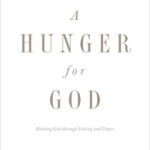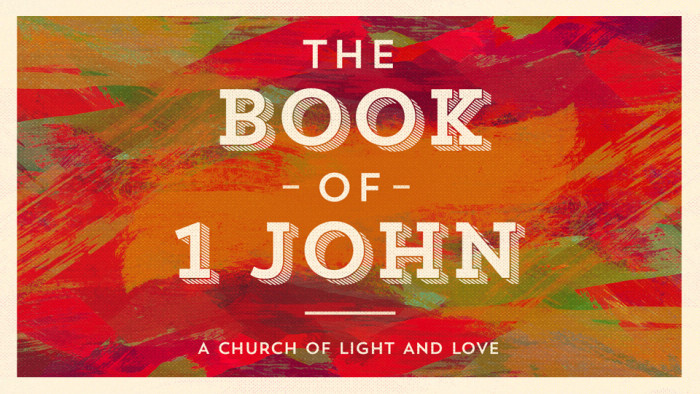“Without a sacred weight of character, the most splendid [preaching] will win only a short-lived applause; with it, the plainest scriptural instructions are eloquent to win souls. Eloquence may dazzle and please; holiness of life convinces.” – Dabney, Evangelical Eloquence, 263.
Monthly Archives: February 2015
Recent Reads
I love to read. By God’s grace I am a pretty fast reader; I usually read a couple books each week. I find it helpful to summarize my thoughts on each book and I offer those thoughts in the hope that you will be encouraged to either read or pass over the given title.
 Discipleship by Dietrich Bonhoeffer. This work is better known in America as The Cost of Discipleship. Bonhoeffer’s collective ruminations on truly following Christ has been a spiritual classic for decades. I’ve started and stopped this work numerous times, largely because I find myself in such agreement that I think, “Ok, I get the point and I completely agree. Time to move on.” Just this week I finally made it all the way through to the end. Bonhoeffer’s main contribution to our understanding of discipleship is his taxonomy on grace: cheap grace versus costly grace. He says,
Discipleship by Dietrich Bonhoeffer. This work is better known in America as The Cost of Discipleship. Bonhoeffer’s collective ruminations on truly following Christ has been a spiritual classic for decades. I’ve started and stopped this work numerous times, largely because I find myself in such agreement that I think, “Ok, I get the point and I completely agree. Time to move on.” Just this week I finally made it all the way through to the end. Bonhoeffer’s main contribution to our understanding of discipleship is his taxonomy on grace: cheap grace versus costly grace. He says,
Cheap grace is the preaching of forgiveness without requiring repentance, baptism without church discipline, Communion without confession, absolution without personal confession. Cheap grace is grace without discipleship, grace without the cross, grace without Jesus Christ, living and incarnate.
After a prolonged meditation on discipleship Bonhoeffer proceeds to exposition of the Sermon on the Mount, which is followed by instruction on Matthew 10 and “The Messengers.” Bonhoeffer’s exegesis is questionable at points and his Lutheran convictions ring out in the book’s final section on the church. Nevertheless, this is a valuable work for our age that wonders if radical calls to obedience are necessary.
 Life Together & Prayerbook of the Bible by Dietrich Bonhoeffer. From 1935-1937 the Finkenwalde seminary provided an occasion for Bonhoeffer to construct something he’d always longed for: the construction of a Christian community based on the Sermon on the Mount. As I read the book I couldn’t help but think of the Finkenwalde experiment as something like evangelical monasticism. Bonhoeffer created a routine of Scripture reading, prayers, meditation, work, singing, confession, and communion that would make the old monks proud. This is not to say I disagree with what Bonhoeffer built. I actually am quite sympathetic to his encouragement of systematically partaking of the means of grace. One thing a reader of Life Together can’t miss is Bonhoeffer’s prioritization of the Psalms for ordinary life in Christ. Thus, it only makes sense for this edition of Bonhoeffer’s Works to couple Life Together with The Prayerbook of the Bible, his brief commentary and application of the Psalms.
Life Together & Prayerbook of the Bible by Dietrich Bonhoeffer. From 1935-1937 the Finkenwalde seminary provided an occasion for Bonhoeffer to construct something he’d always longed for: the construction of a Christian community based on the Sermon on the Mount. As I read the book I couldn’t help but think of the Finkenwalde experiment as something like evangelical monasticism. Bonhoeffer created a routine of Scripture reading, prayers, meditation, work, singing, confession, and communion that would make the old monks proud. This is not to say I disagree with what Bonhoeffer built. I actually am quite sympathetic to his encouragement of systematically partaking of the means of grace. One thing a reader of Life Together can’t miss is Bonhoeffer’s prioritization of the Psalms for ordinary life in Christ. Thus, it only makes sense for this edition of Bonhoeffer’s Works to couple Life Together with The Prayerbook of the Bible, his brief commentary and application of the Psalms.
 Worldliness: Resisting the Seduction of a Fallen World edited by C.J. Mahaney. Mahaney, in my view, is right to say, “Today, the greatest challenge facing American evangelicalism is not persecution from the world, but seduction by the world.” A common topic of discussion in centuries past, the issue of worldliness seems to have receded from the broader evangelical world today. With the big “L Word” (legalism) lurking around every corner few people seem concerned with the danger of loving the world. Yet Scripture unalterably warns against lurking worldliness (1 John 2:15-17). The Sovereign Grace men do a fantastic job in this book offering winsome counsel towards crucifying desires for the world. Resisting the temptation to offer unbiblical prescriptions, each chapter offers sound wisdom on matters of media, modesty, music, and living faithfully in the world. Highly recommended!
Worldliness: Resisting the Seduction of a Fallen World edited by C.J. Mahaney. Mahaney, in my view, is right to say, “Today, the greatest challenge facing American evangelicalism is not persecution from the world, but seduction by the world.” A common topic of discussion in centuries past, the issue of worldliness seems to have receded from the broader evangelical world today. With the big “L Word” (legalism) lurking around every corner few people seem concerned with the danger of loving the world. Yet Scripture unalterably warns against lurking worldliness (1 John 2:15-17). The Sovereign Grace men do a fantastic job in this book offering winsome counsel towards crucifying desires for the world. Resisting the temptation to offer unbiblical prescriptions, each chapter offers sound wisdom on matters of media, modesty, music, and living faithfully in the world. Highly recommended!
 A Hunger for God: Desiring God through Fasting and Prayer by John Piper. One of my endeavors for 2015 is to grow in the practice of fasting. I turned to Piper’s book for counsel and encouragement in my own devotional life and he didn’t disappoint. A Hunger for God is classic Piper: rigorously biblical, deeply thoughtful, and occasionally loquacious. If you don’t want to read the whole book, at least pick up the free PDF here and read the first chapter, “Is Fasting Christian?”
A Hunger for God: Desiring God through Fasting and Prayer by John Piper. One of my endeavors for 2015 is to grow in the practice of fasting. I turned to Piper’s book for counsel and encouragement in my own devotional life and he didn’t disappoint. A Hunger for God is classic Piper: rigorously biblical, deeply thoughtful, and occasionally loquacious. If you don’t want to read the whole book, at least pick up the free PDF here and read the first chapter, “Is Fasting Christian?”
 A Serious Call to a Contemplative Lifestyle by Glenn Hinson. What a puzzle this slim volume volume is. For over thirty years Hinson was the professor of church history at The Southern Baptist Theological Seminary. But go ahead an throw out any notions of classic Baptist spirituality right now. Hinson advocates process theology, sympathetic to the evolutionary philosophy of Teilhard, and mystical in his orientation. His contemplative model of spirituality says, “God loves you. Love God back through contemplation on His loving essence.” I did enjoy his pleas for simplicity in life and the importance of meditative prayer, yet his almost utter disregard for God’s word as a means of grace makes his “serious call” . . . well, not that serious at all.
A Serious Call to a Contemplative Lifestyle by Glenn Hinson. What a puzzle this slim volume volume is. For over thirty years Hinson was the professor of church history at The Southern Baptist Theological Seminary. But go ahead an throw out any notions of classic Baptist spirituality right now. Hinson advocates process theology, sympathetic to the evolutionary philosophy of Teilhard, and mystical in his orientation. His contemplative model of spirituality says, “God loves you. Love God back through contemplation on His loving essence.” I did enjoy his pleas for simplicity in life and the importance of meditative prayer, yet his almost utter disregard for God’s word as a means of grace makes his “serious call” . . . well, not that serious at all.
 Ordinary Grace by William Kent Krueger. I’d seen Krueger’s latest novel on many “Best of 2014” lists, so I picked it up with high expectations and wasn’t let down. Set in New Bremen, Minnesota in the summer of 1961, Ordinary Grace is told through the eyes of Frank Drum – forty years after he experienced the events of 1961 as a somewhat rebellious thirteen-year-old. Several tragic deaths struck the quaint northern city that summer and we feel it through the emotions of the Drum household. As the death toll increases so does the angst and pain of investigating the loss of those you love. Krueger shows himself to be a master of pacing and well-textured characters. The “surprise” ending was foreseeable, and not totally believable, but don’t let that dissuade you from reading this one. A compelling read from start to finish.
Ordinary Grace by William Kent Krueger. I’d seen Krueger’s latest novel on many “Best of 2014” lists, so I picked it up with high expectations and wasn’t let down. Set in New Bremen, Minnesota in the summer of 1961, Ordinary Grace is told through the eyes of Frank Drum – forty years after he experienced the events of 1961 as a somewhat rebellious thirteen-year-old. Several tragic deaths struck the quaint northern city that summer and we feel it through the emotions of the Drum household. As the death toll increases so does the angst and pain of investigating the loss of those you love. Krueger shows himself to be a master of pacing and well-textured characters. The “surprise” ending was foreseeable, and not totally believable, but don’t let that dissuade you from reading this one. A compelling read from start to finish.
 Defending Jacob by William Landay. I once saw a review calling Defending Jacob a near identical twin to Scott Turow’s genre-creating work Presumed Innocent. Such talk demands a personal investigation, so off I went to get my own copy of the latest book to receive “The Next Presumed Innocent” award. Defending Jacob is indeed strikingly similar in tone to Turow’s classic. But don’t call it a copycat. Landay’s book stands on its own merits – which are many – and it draws you in from the prologue. Andy Barber is the assistant district attorney of a New England suburb stunned by the brutal death of a young boy in a leafy city park. For Barber the death is even more shattering: his son Jacob is accused of being the murderer. Two questions consume the reader as Jacob’s arrest and trial unfold: 1) Is Jacob a sociopath in the making? 2) Or is he simply a troubled kid in the wrong place at the wrong time? People Magazine says, “The shocking ending1 will have readers pulling up their bedcovers to ward off the haunting chill.” Such sentiment is a wee bit strong, but Defending Jacob does stick with you.
Defending Jacob by William Landay. I once saw a review calling Defending Jacob a near identical twin to Scott Turow’s genre-creating work Presumed Innocent. Such talk demands a personal investigation, so off I went to get my own copy of the latest book to receive “The Next Presumed Innocent” award. Defending Jacob is indeed strikingly similar in tone to Turow’s classic. But don’t call it a copycat. Landay’s book stands on its own merits – which are many – and it draws you in from the prologue. Andy Barber is the assistant district attorney of a New England suburb stunned by the brutal death of a young boy in a leafy city park. For Barber the death is even more shattering: his son Jacob is accused of being the murderer. Two questions consume the reader as Jacob’s arrest and trial unfold: 1) Is Jacob a sociopath in the making? 2) Or is he simply a troubled kid in the wrong place at the wrong time? People Magazine says, “The shocking ending1 will have readers pulling up their bedcovers to ward off the haunting chill.” Such sentiment is a wee bit strong, but Defending Jacob does stick with you.
Click here to find other entries in the Recent Reads series.
—————————————————————————————————————–
- For the record, the ending wasn’t a shock at all. It’s easy to predict if you pay attention to Jacob’s relationships in the book. ↩
10 Pitfalls in the Pursuit of Purity
On February 1, 1995 John Piper preached a message at Northwestern College’s chapel service on “Avoiding Sexual Sin.” Oh, how needed the message remains 20 years later! Is there any greater fight for the pastor than the fight for purity? For most, it is the fight.
With his usual passion and sagacity Piper gives Christian leaders and pastors “10 Sexual Pitfalls and Strategies for Protection” in hope “that this Biblical expose of the deceitfulness of sin will intensify our vigilance and keep us pure for the greatest work in the world.” They are well worth your meditation and prayer as you labor for the holiness without which no one will see the Lord.
10 Pitfalls and Protections
1. PITFALL: Falling in love with the present world. “For Demas, in love with this present world, has deserted me and gone to Thessalonica.” (2 Timothy 4:10)
- PROTECTION: Think long and hard about the deadly poison of world-love and ponder the never-ending delights of the mountain spring of God’s approval and fellowship and beauty.
2. PITFALL: Loss of horror at offending the majesty of God’s holiness through sin. “Nathan said to David, ‘Why have you despised the word of the Lord, to do what is evil in his sight? . . . Now therefore the sword shall never depart from your house, because you have despised me, and taken the wife of Uriah?'” (2 Sam. 12:7-10).
- PROTECTION: Meditate on the Biblical truth that all our acts are acts toward God and not just toward man. . . .and that God is so holy and pure that he will not countenance the slightest sin, but hates it with omnipotent hatred. . . .and that the holiness of God is the most valuable treasure in the universe and the very deepest of delights to those whose way is pure.
3. PITFALL: A sense of immunity from accountability and authority. “I have written something to the church; but Diotrephes, who loves preeminence, does not acknowledge my authority.” (3 John 9)
- PROTECTION: Submit yourself to a council of Biblically minded, spiritually wise advisers.
4. PITFALL: Succumbing to itching ears as love of truth evaporates. “For the time is coming when people will not endure sound teaching, but having itching ears they will accumulate for themselves teachers to suit their own liking, and will turn away from listening to the truth.” (2 Tim. 4:3-4)
- PROTECTION: Cultivate a love for truth, even in its smallest details, and turn a deaf ear to the desires of men to have their ears scratched with vague moralisms that massage them in their sin.
5. PITFALL: A vanishing attention to Scripture. “All Scripture is inspired by God and profitable for teaching, for reproof, for correction, and for training in righteousness, that the man of God may be complete, equipped for every good work.” (2 Tim. 3:16-17)
- PROTECTION: Give yourself untiringly to the study, meditation and memorization of Holy Scripture.
6. PITFALL: A growing disregard for the spiritual good of his followers. An Old Testament refrain is that when the king sinned, the people were ruined. “The Lord will smite Israel. . . and give Israel up because of the sins of Jeroboam, which he sinned and which he made Israel to sin.” (1 Kings 14:15-16)
- PROTECTION: Labor in praying and caring to stir up your heart to love all your people.
7. PITFALL: Disregard for the Biblical mystery of marriage. “A man shall leave his father and mother and be joined to his wife, and the two shall become one. This is a great mystery, and I take it to mean Christ and the church.” (Eph. 5:32)
- PROTECTION: Remind yourself repeatedly that your marriage is a living drama of Christ’s relationship to the church. Let your thoughts about your spouse rise from the ordinary to the extraordinary by faith in the truth of Ephesians 5:32.
8. PITFALL: Compartmentalizing of the leader’s life. In the New Testament the leader’s home life is an essential part of his qualification for church leadership (1 Tim. 3:4,12). In other words, the New Testament will not allow us to compartmentalize our life so that some parts of it are irrelevant to the issue of leadership.
- PROTECTION: View everything—absolutely everything—as woven together by its relationship to the value of the glory of God.
9. PITFALL: A sense of being above the necessity of suffering and self-denial. “Take your share of suffering as a good soldier of Christ Jesus.” (2 Tim. 2:3)
- PROTECTION: Never forget the promise: “Through many tribulations we must enter the kingdom of God” (Acts 14:22). And never forget that the Son of Man had no place to lay his head (Luke 9:58). And develop a Biblical theology of futility and suffering, especially from Romans 8:17-30.
10. PITFALL: Giving in to self-pity under the pressures and loneliness of leadership. The stronger the impulse of self-pity, the more inclined we are to reward ourselves with unusual treats. The more we pity ourselves for how hard life is the more easily we justify a little extra pleasure —even illicit sexual pleasure.
- PROTECTION: Embrace the essence of “Christian Hedonism”—the doctrine that no one who suffers the loss of any earthly blessing in the service of Christ will fail to be repaid a hundred-fold now (with persecutions!) and in the age to come eternal life (Mark 10:29-30).
Read all this and more over on Desiring God.
No Complaint Here
“Pastors should not complain about their congregation, certainly never to other people, but also not to God. Congregations have not been entrusted to them in order that they should become accusers of their congregations before God and their fellow human beings.” – Dietrich Bonhoeffer, Life Together, 37.
“An Awful Weapon”
From its inauguration John Piper has delivered a biographical message at the Desiring God Pastors Conference. I’ve personally found these talks to be the highlight of each conference.
This year’s DGPC doesn’t have a biographical talk scheduled, so if you’re clamoring for some stirring vignette of an oak of righteousness here’s a great one: “He Kissed the Rose and Felt the Thorn: Living and Dying in the Morning of Life: Meditations on the Life of Robert Murray M’Cheyne.”
M’Cheyne said, “A holy minister is an awful weapon in the hand of God.” His life proved that maxim true o’er and o’er, and continues to do so today. Listen here or watch below and let the young Scotsman inspire, challenge, and comfort.
Another Round of Elder Training
We are about to begin a second round of elder training at IDC.
Our first round began in September 2013. I spent the first nine months in our church’s existence looking for a few faithful men who: 1) had the character of an elder, and 2) were already doing the work of an elder. Three men were found and they all agreed to jump into a six-month candidacy phase. Two eventually were installed as elders in April 2014.
THEOLOGY AND PHILOSOPHY
The candidacy phase is a time to test and train. Books, lectures, and questionnaires become demanding – yet kind – friends for everyone involved. The resources are meant to solidify each man’s areas of convictional strength, while at the same time exposing areas of growth necessary for healthy shepherding.
My greatest burden in the training is to tease out the candidates’ beliefs in matters of ministry philosophy. One wise pastor encouraged told me several years ago, “One of the things I’ve discovered is that its possible to get elders who have all the theology right, but still have issues later over different philosophies of ministry. That was the most significant challenge we faced in our first 3-4 years.” It’s advice I’ve yet to forget.
I’m remembering it afresh as we stand on the threshold of another round of elder candidate training. Here’s the content we are using to tease out theological and philosophical convictions this time around. I hope it might be a launching pad of sorts for your own elder candidate training.
Download a PDF of IDC’s Elder Training Schedule.
The True Test of Faith
–This post is adapted from my recent sermon, “The Light of Love,” on 1 John 2:7-14.–1
John’s opening salvo in his message came in 1:5 when he said, “This is the message we have heard from him and proclaim to you that God is light and in Him there is no darkness at all.” Since then he has guided us to see how we might know we are truly walking in the light with God. At the end of chapter one he said increasing consciousness and confession of sin reveal true fellowship with God. We saw last week in the beginning of chapter two that we know we are in Christ if we obey his commands.
His instruction continues in our text with the test of genuine love for fellow Christians. His burden in this passage is oh so simple, “A church who lives in the light walks in love.” I want to hone in on that truth with this main point: Love for the family of Christ is the true test of living faith in Christ.
TAKE HEED!
Look at how 2:7 and 2:8 begins, “Beloved, I am writing you no new commandment, but an old commandment . . . At the same time, it is a new commandment that I am writing to you.” Do you wonder if John is merely confused in his old age? He refers to a commandment that is simultaneously old and new. How is that even possible? The context makes clear he’s talking about the command to love each other (cf. John 13:25; 2 John 5). So here’s the question we must ask at the outset, “In what sense is the law of love old and new?
In What Sense is the Law of Love Old and New?
First, it seems likely John’s opponents in Asia Minor accused him—and other church leaders—of theological novelty in their confession of Christ. An easy rhetorical swipe in religious debates throughout the centuries has been to call some doctrinal teaching “new.” Novelty ordinarily undermines theological stability. Thus, John wants his readers to know that his commandment actually isn’t new; it’s not something he recently invented.
Notice how 2:7 helps us see what John means by the law’s “oldness.” He says, “[This is the] old commandment that you had from the beginning. The old commandment is the word that you have heard.” When John refers to the message heard at the beginning he always referencing the gospel message that arrived with Christ. Anyone familiar with the ministry of Jesus would know his command to love was a central tenet of his teaching. So, the law of love is old because it originated with Jesus, in his commands and ministry.
But in what sense is it also new? Look at 2:8, “[The] new commandment . . . is true in him and in you, because the darkness is passing away and the true light is already shining.” That last phrase “the true light is already shining” is a favorite way that John, in his gospel (Jn. 8:12; cf. 1:19; 3:19; 9:5; 12:35, 46) likes to talk about a new age dawned with Jesus. The law of love is new because it culminated in Jesus. One commentator say that in Jesus “a new era has dawned, a new age has come, a new empowering light is shining, all of which give the church new possibilities for love and a new imperative” to love. And if you survey Jesus’ teachings on love I think you can summarize its “newness” in three ways:
- It was new in its emphasis. In Mark 12:30 Jesus said the greatest commandment is loving the Lord with your whole being and right next to this is loving your neighbors as yourself. Loving God and loving your neighbor are two sides of the same “commandment coin.” And as common as that might be today, we have no record of anyone combining them before Jesus.
- It was new in its extent. To an orthodox Jew the Gentiles were not to be loved; they believed God created the Gentile peoples for hell. But Jesus called His people to love everyone, to share his love with the Gentiles nations.
- It was new in its example. John wants us to know that just as the sunrise pierces the night, Jesus’ life and death broke the dark dominion of sin. And at the epicenter of His burning light is white-hot love for His people. As he said in John 15, “Greater love has no one than this, that someone lay down his life for his friends.” Jesus death on the cross is the greatest display of love the world has ever seen because it shattered sin forever.
If you are not a Christian, oh how I pray you would know this love of Christ. The Bible says God showed his love for us that even while we were still sinner, Jesus died for us. Where are you turning for love? Anything or anyone in the world can never love you perfectly, but Jesus, the King over this world, will love you to the uttermost. He only calls you to turn from your sin and trust in Him.
Church, we can’t miss the spiritual gold John tucks away in the middle of 2:8, this new commandment of love “is true (lit. “genuine”) in him and in you.” John expects the church of Christ will reflect the love of Christ. What kind of love do you have for your brothers and sisters in Christ? John believes it is to be quite literally “otherworldly.” We are corporately tested by our love for each other.
I once saw an article that during World War II the United States loved to have a color-blind soldier on reconnaissance and spotter flights because they could not be fooled by the ordinary and colorful tricks of camouflage. Seeing in black and white let them cut right through to the truth.
It seems like John is almost colorblind spiritually, he always categorizes people in black and white categories. For notice, as we move into 2:9-11, how he puts people into one of two categories: lovers or haters.
Look at 2:9, “Whoever says he is in the light and hates his brother is still in darkness.” The point is clear enough, true Christians and true churches reveal the light by their love. But what’s interesting is John polarization of categories. You might be thinking, “Just because I don’t love someone doesn’t mean I hate them.” But John intends to lift us out of the casual indifference we can be tempted with towards our fellow Christians. What ways this week can you more greatly channel God’s love into the lives of your fellow church members?
See now John’s positive contrast in 2:10, “Whoever loves his brother abides in the light, and in him there is no cause for stumbling.” I want to come back to this verse more at the end, but for now we need to see how John is bringing all the previous strands of teaching together in this verse. In chapter 1 he said we are to walk in the light as He is in the light. Last week John spoke of obedience to Jesus’ commands in general as the way we test ourselves. This week he speaks of obedience to the love commandment in particular is the ultimate test of assurance. Love is the living evidence of new birth and eternal life.
Notice how John returns to the dark side in 2:11, “But whoever hates his brother is in the darkness and walks in the darkness, and does not know where he is going, because the darkness has blinded his eyes.” He’s upped the ante here hasn’t he? The first part of 2:11 echoes 2:9, but then he compounds the spiritual danger of hating one’s brother by saying us it makes one wander around blind in the darkness. A lack of love is like a spiritual blindfold over the eyes of your heart. It’s blinds you from seeing that satisfaction and salvation are found in Christ alone. Hatred blinds the heart and hardens the soul to that a person only wanders deeper and deeper into sin.
John point is quite simple isn’t it? “A church who lives in the light walks in love.”
———————————————————————————————
- What’s with all the color in this text? See my post, “Colorful Preaching,” on why I color code my sermon manuscripts. ↩



